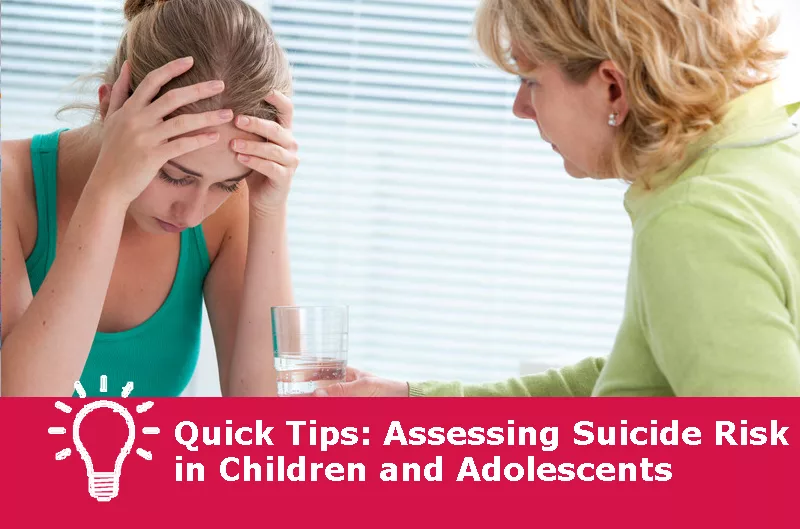When children or adolescents come to your office showing signs of suicidal ideation, it’s necessary to conduct a focused assessment.
During an interview in The Carlat Child Psychiatry Report, Cynthia Pfeffer, MD, Professor of psychiatry and director of the Childhood Bereavement Program at Weill Cornell Medicine, White Plains, NY, recommends that the assessment include specific questions about suicidal thinking and planning.
Dr. Pfeffer recommends that, when you learn that the child is thinking about suicide, you try to quantify it. Ask the child “how many times in each hour do you think about suicide?” and “How often does this occur in a day?” Clinicians need to be methodical, but not tedious in covering the range of risk factors.
Keep an order in mind while using a style that is conversational, and not a checklist approach. With that, Dr. Pfeiffer recommends the following when phrasing your questions:
Following the assessment, Dr. Pfeffer says it’s essential to help the child or adolescent and their parents create a safety plan. This is based on the assessment, and it must be meaningful and actionable for the child or adolescent. You want them to be assured that, if they have thoughts of self-harm, they will put themselves in a safer situation by talking or being with someone who can help them.
It’s necessary to identify helping people who are easily reachable. The child or adolescent needs someone in proximity, who is reliable and who the child isn’t afraid to tell about their suicidal thoughts or acts. This plan should not only include peers, but also adults with whom the adolescent feels comfortable. At school, this could be the child’s guidance counselor or teacher(s).
Subscribers to The Carlat Child Psychiatry Report can read the full interview with Dr. Pfeffer, and learn more about treating children and adolescents for suicidal behavior.
During an interview in The Carlat Child Psychiatry Report, Cynthia Pfeffer, MD, Professor of psychiatry and director of the Childhood Bereavement Program at Weill Cornell Medicine, White Plains, NY, recommends that the assessment include specific questions about suicidal thinking and planning.
Dr. Pfeffer recommends that, when you learn that the child is thinking about suicide, you try to quantify it. Ask the child “how many times in each hour do you think about suicide?” and “How often does this occur in a day?” Clinicians need to be methodical, but not tedious in covering the range of risk factors.
Keep an order in mind while using a style that is conversational, and not a checklist approach. With that, Dr. Pfeiffer recommends the following when phrasing your questions:
- Try to ask: “Do you ever think that you want to die? What did you think about?” If a child starts with the word suicide, try to understand what they mean by that. Do not assume that they are saying what you think they are saying.
- Ask a child or adolescent to “Tell me more about what you were thinking. When do you have thoughts of suicide? What might help you feel better?”
- Pursue more specific questions about self-harm: “Did you ever think you wanted to hurt yourself? Tell me more about it. Did you ever think you wanted to do something to cause you to die? Did you ever try to do something to harm yourself or could cause you to die? Did you ever try to commit suicide? Did you think that there was something else you could do instead to feel better?”
Following the assessment, Dr. Pfeffer says it’s essential to help the child or adolescent and their parents create a safety plan. This is based on the assessment, and it must be meaningful and actionable for the child or adolescent. You want them to be assured that, if they have thoughts of self-harm, they will put themselves in a safer situation by talking or being with someone who can help them.
It’s necessary to identify helping people who are easily reachable. The child or adolescent needs someone in proximity, who is reliable and who the child isn’t afraid to tell about their suicidal thoughts or acts. This plan should not only include peers, but also adults with whom the adolescent feels comfortable. At school, this could be the child’s guidance counselor or teacher(s).
Subscribers to The Carlat Child Psychiatry Report can read the full interview with Dr. Pfeffer, and learn more about treating children and adolescents for suicidal behavior.


_-The-Breakthrough-Antipsychotic-That-Could-Change-Everything.webp?t=1729528747)



